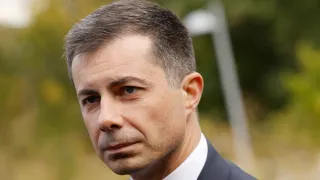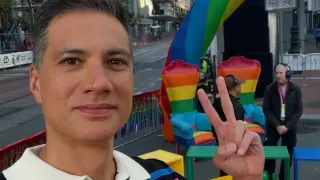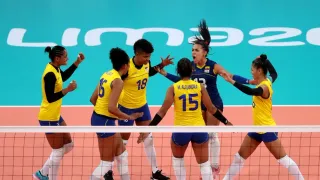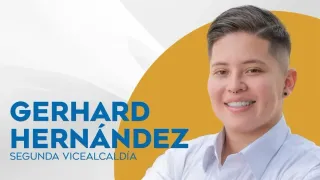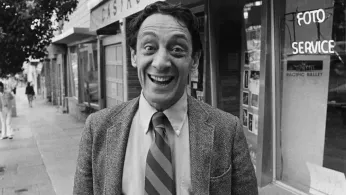
4 hours ago
Utah Lawmaker Proposes Renaming Harvey Milk Boulevard to Honor Assassinated Conservative Figure Charlie Kirk
READ TIME: 4 MIN.
In 2016, Salt Lake City’s council unanimously voted to rename a segment of 900 South as Harvey Milk Boulevard, paying tribute to Harvey Milk, the first openly gay man elected to public office in California and a symbol of LGBTQ+ activism who was assassinated in 1978. The move was widely celebrated by LGBTQ+ advocates as a milestone for visibility and inclusion in Utah, a state with a complex history regarding LGBTQ+ rights. At the time, Stan Penfold, Salt Lake City’s first openly gay council member and author of the measure, emphasized that the naming sent an affirming message about the city’s values and its LGBTQ+ residents .
Republican State Representative Trevor Lee of Layton has filed a bill seeking to rename Harvey Milk Boulevard in Salt Lake City as Charlie Kirk Boulevard. Kirk, a conservative activist and founder of Turning Point USA, was fatally shot on September 10, 2025, during a speaking engagement at Utah Valley University in Orem, about 40 miles southeast of Salt Lake City . In interviews with local media, Lee argued that Kirk’s assassination in Utah makes him a more relevant figure for local commemoration than Milk, who was killed in San Francisco and had no direct ties to the Beehive State .
“From the vast majority of Utahns, they would say that Harvey Milk does not have any connection to Utah whatsoever,” Lee told a local ABC affiliate. “But Charlie Kirk does now, especially after being assassinated in the state of Utah” . Lee further stated, “It’s extremely sad that someone was assassinated because they wanted to have dialogue and someone didn’t agree with that … I think it’s a good way to honor someone who always wanted to reach out to the other side of the aisle” .
Despite Rep. Lee’s proposal, the authority to rename streets in Salt Lake City rests primarily with the city council, not the state legislature, as 900 South is a city street rather than a state highway. Under Utah’s municipal code, changes to local street names require approval from municipal leaders, although state lawmakers can attempt to override local decisions if a bill gains significant traction . Salt Lake City Mayor Erin Mendenhall and her office have declined to comment on the proposal, and no formal response has yet come from the Salt Lake City Council .
The prospect of removing Harvey Milk’s name from a prominent city street has alarmed many LGBTQ+ advocates in Utah and nationwide. For many, Harvey Milk’s legacy is not only about his role in California history but also his broader significance as a trailblazer who inspired generations of LGBTQ+ leaders and community members across the country . “Harvey Milk represents hope and courage for everyone who has ever felt marginalized,” said a spokesperson for Equality Utah, the state’s leading LGBTQ+ advocacy group, in a written statement. “Erasing his name from our streets sends a chilling message about which histories are valued and whose lives are worthy of public recognition” .
LGBTQ+ organizations also note that the proposal comes amid a series of moves by conservative state and federal officials to roll back or reframe public symbols of LGBTQ+ progress, including the recent decision by Defense Secretary Pete Hegseth to rename the USNS Harvey Milk, a Navy ship honoring the gay rights pioneer, as part of broader efforts to eliminate diversity, equity, and inclusion initiatives in the military .
The debate over who is commemorated in public spaces is not unique to Utah. Across the country, lawmakers and activists have clashed over the legacy of historical figures and the politics of memory, with streets, schools, and monuments often at the center of broader cultural battles. In Salt Lake City, the Harvey Milk Boulevard naming was originally celebrated as both a symbol and practical affirmation of the city’s commitment to diversity and inclusion .
Rep. Lee’s bill reflects a growing national trend among some conservative lawmakers to challenge or remove honors for figures associated with progressive or LGBTQ+ causes, and to elevate new icons seen as more aligned with their political values. Lee himself previously co-sponsored a controversial bill to ban unsanctioned flags—including Pride flags—in Utah schools and government buildings, a measure that was met with resistance from Salt Lake City, which responded by adopting a rainbow Pride flag as an official city symbol .
As of publication, Rep. Lee’s proposal awaits formal consideration by the Utah State Legislature. Should the bill advance, it will face scrutiny from both local officials and a diverse coalition of community groups. LGBTQ+ advocates have already indicated their intent to mobilize in defense of Harvey Milk Boulevard, emphasizing the need for inclusive representation and the importance of public spaces that affirm the dignity and history of all Utahns .
“This is about more than a street name,” said a Salt Lake City resident who participated in the original dedication. “It’s about who we are as a city—and who is welcome here” .
As Utah, like much of the United States, continues to grapple with questions of memory, identity, and belonging, the fate of Harvey Milk Boulevard will likely remain a focal point for ongoing debates about inclusion, diversity, and the power of public commemoration.
